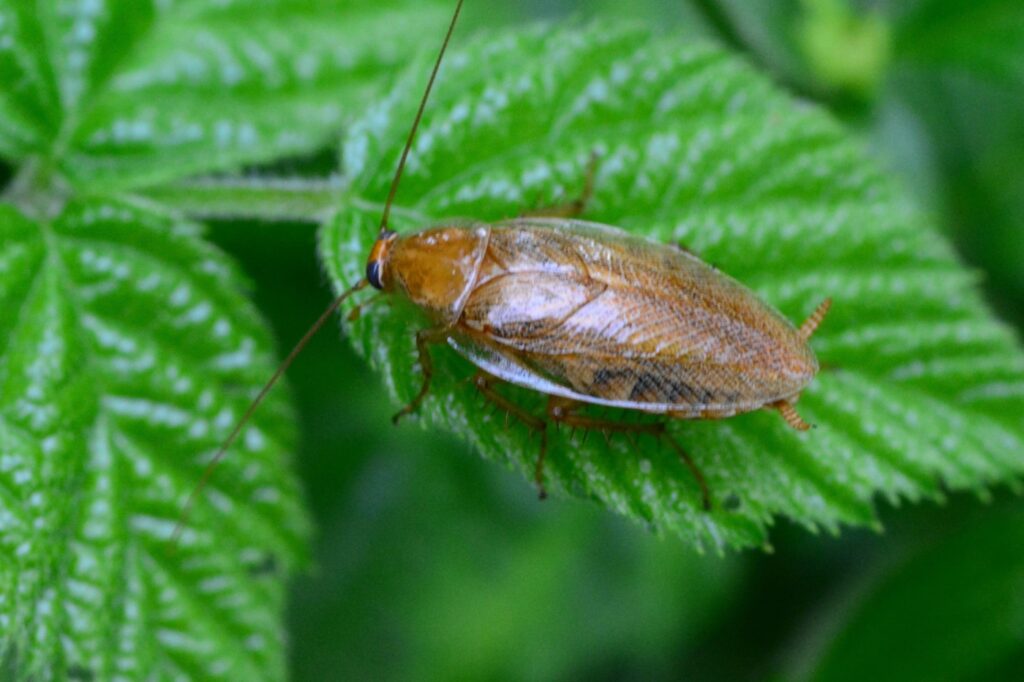
Q I’ve been seeing a lot of cockroaches outdoors, especially since construction began on a new shopping center across the street. Are these the same roaches that live indoors? Could the construction be causing them to come out?
The roaches you see outdoors are probably not the same type of roaches that live indoors. There are five species of cockroaches that are prevalent in Southern California. German cockroaches are the most common indoor roach. They live and breed in food storage and prep areas and prefer warm (70-75F) humid environments. They are the most troublesome since they can spread diseases such as staph, strep, hepatitis and other food-borne illnesses.
Brownbanded roaches are much less common than German cockroaches. They prefer a warmer environment (around 80 degrees Fahrenheit) and are less likely to be found in food storage or prep areas. They are also an indoor roach species but prefer starchy foods such as paper and glue. They can be found in cluttered indoor areas.
American, Oriental, and Turkmenistan cockroaches are the most common outdoor roaches. Oriental cockroaches, also known as “water bugs”, can often be found in garages, basements, and other cool moist environments. They prefer to stay outdoors but will migrate indoors.
American cockroaches, another outdoor species, prefer a warmer, moist environment. They can be found (if, for some reason, you’re looking) in sewers, storm drains, and meter boxes. If they get indoors, they can contaminate food with the nasty stuff that grows in sewers and storm drains.
Turkestan cockroaches are a relatively recent introduction to California and, you guessed it, are considered invasive. They are commonly sold as food for pet reptiles and tarantulas because they are easy to breed and keep alive. They also don’t smell as bad as crickets, so they’ve become quite popular and are being shipped all over the country.
The University of California has a definitive guide to cockroaches so if you want to get up close and personal you can identify what kind of roach is roaming your neighborhood.
All outdoor roaches like to hang out in leaf litter and outdoor debris, so if the soil is being disturbed by construction activity, it’s likely that you’re seeing one of these types of roaches.
Q Why don’t you recommend salt instead of Round-Up as an effective weed control?
Salt is indeed an effective weed killer, but it will remain in the soil almost indefinitely. One of my neighbors salted his lawn right before his house was foreclosed. That was ten years ago and the grass still will not grow in that spot. Salt tends to accumulate, so even if you spot-treat weeds with it, the surrounding soil will become more and more saline as the salt spreads.
Although I don’t recommend Round-Up as a first choice for weed control, it is a reasonably safe option. This does not mean that it is completely harmless. Always follow label instructions and precautions before using any pesticide or herbicide! For more information: https://ipm.ucanr.edu/GENERAL/pesticides.html
Los Angeles County
mglosangeleshelpline@ucdavis.edu; 626-586-1988; http://celosangeles.ucanr.edu/UC_Master_Gardener_Program/
Orange County
ucceocmghotline@ucanr.edu; 949-809-9760; http://mgorange.ucanr.edu/
Riverside County
anrmgriverside@ucanr.edu; 951-683-6491 ext. 231; https://ucanr.edu/sites/RiversideMG/
San Bernardino County
mgsanbern@ucanr.edu; 909-387-2182; http://mgsb.ucanr.edu
